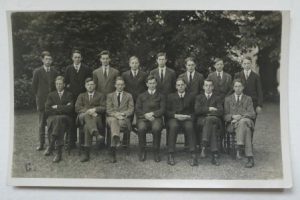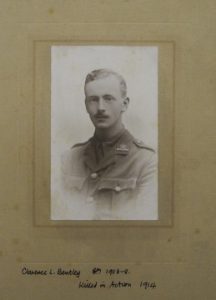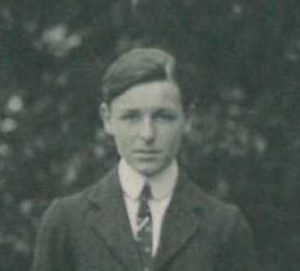On the passage from Dover to Dunkirk the vessel Invicta assisted in rescuing- the survivors of the sunken cruiser Hermes. The members of the party rendered aid by manning the boats, by dressing one or two wounds, by artificial respiration for the partially drowned, and by stretcher work.
On arrival at Dunkirk the larger number of the party proceeded almost at once to the station sheds, where the wounded are laid out on straw. The work there, which is described by Dr. Nockolds, has continued, with the exception of half of Monday night, ever since. It is mostly carried on by relay parties of six to twelve persons, who work day and night in shifts of four hours. As the stream of wounded is almost continuous, and as it requires at the least six in a shift, and usually more, to cope with the need, it is clear that for a party of less than fifty the work has been heavy. This has been accentuated by the necessity of utilising a considerable number of the party in other ways. But the work has been well done, and the British Consul here has volunteered the opinion that our presence and efforts have done much towards improving the general organisation, order, and cleanliness of the clearing sheds.
In addition to this, men have been detailed to supervise and organise the loading of hospital ships which transport the wounded from Dunkirk to Cherbourg and other centres. On Sunday 750 cases were loaded on the British hospital ship Rewa between 6.30 a.m. and 11 o’clock; on the same day 600 were loaded on the Plassy; on Tuesday and Wednesday the same boats were filled with a complement of 900 and 690 respectively; on the Monday 1,200 were put on a French boat. Fleet-Surgeon Datton, of the Rewa, expressed great satisfaction with the way the work was carried out. Six hundred blankets were obtained, after much effort, from the French authorities for the use of the wounded on the Rewa. Some transport work with the motor ambulances has been accomplished, but up to the present no great necessity for it has arisen, as at Dunkirk there is a large fleet of military ambulances, and the ambulance trains are usually shunted right down to the quays; the cars have, however, been in constant use for taking the surgeons and dressers rapidly to and from the clearing sheds and the hospital ships.
There is more work to be done in Dunkirk than can be handled by the present party; that is to say, more men can be immediately and profitably employed. Further, we have hopes of establishing in a day or two a dressing station in a Belgian military hospital at Ypres, which will require a complement of twelve men or thereabouts. And, lastly, as part of a larger scheme, we hope to establish a small clearing hospital where operations necessary to save the lives of some of those who come into the station sheds can be safely carried out. It is hoped that the French military authorities will allocate to us an apartment which is admirably suited to the purpose, and which is only a few hundred yards from our present headquarters at Malo-les-bains, just outside Dunkirk.
At the moment of writing the party is provided with eight motor ambulances, one motor-lorry, and a motor bicycle. If the present plans mature, more motor ambulances and more unconverted “scouting” cars will be urgently needed. The morale of the party is very good.
PHILIP J. BAKER. Dunkirk, November 6th, 1914.
From ‘Bootham’ magazine, December 1914. Philip J. Baker was at Bootham between 1903 and 1906. He was later known as Philip Noel-Baker, and received the Nobel Peace Prize in 1959.




